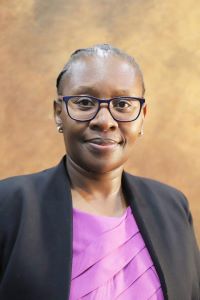
By Nomonde Mnukwa
This month will be one of the busiest for our country. We will participate in our nation’s seventh democratic elections on 29 May 2024, commemorate Africa Day on 25 May and mark the 28th anniversary of the adoption of our Constitution.
The anniversary of our Constitution is an important national milestone to be celebrated. It was adopted on 8 May in 1996 and gave effect to the vision contained in the Freedom Charter of a nation rooted in the principles of democracy, equality and non-discrimination.
Both the Freedom Charter and the Constitution are products of our long struggle for freedom, justice, equality, human dignity and a better life for all people. It represents our triumph against colonialism and apartheid, and against oppression, subjugation and dispossession.
The Constitution is the highest law of the land and crucially sets out checks and balances to ensure that power is not abused. Unlike in the past, our nation’s power does not lay with only one branch of the state but is divided between the executive, the legislature and the judiciary.
The Constitution also advances a social compact on how we should relate to each other as a people considering our divided past. It enshrines the rights of every South African and explains our obligations as citizens to each other and the country within those rights. In making the tenets of the Constitution part of our daily lives, we forge a stronger society.
With it in operation for many years, the Constitution continues to guide our nation as we seek to undo the evils of the past. It has been central in our quest to build a society that is different from the one we inherited in 1994 and to heal the divisions of the past.
By any measure, South Africa is a different country today compared to pre-1994. The 30-Year Review Report shows that our country has undergone a sea change since 1994. It paints a picture of a society on the move and reflects improvements across most indicators. We have worked hard over the past 30 years to build our society on the values of democracy, equality and respect for all.
Working together we have ensured that socio-economic rights, which include the right to healthcare, water, education, social security, electricity and sanitation are realised by all South Africans irrespective of race and gender. We have introduced laws and policies on worker rights, employment equity and broad-based black empowerment.
We have also implemented a set of social protection policies and programmes to reduce and prevent poverty and vulnerability. Our social grants to more than 18 million beneficiaries brings financial security to many families and contributes towards improving the standard of living of people.
We have made valuable progress in redressing our past on the education front and charting a better path for our children. Today our healthcare system caters for all South Africans as we prioritised the construction of new hospitals and clinics to reach more people. We have also saved millions of lives by introducing the most extensive HIV treatment programme in the world.
The progress we have made since 1994 has been a product of the active participation and contribution of all South Africans. As we embark on the next leg of our journey, South Africans guided by our Constitution will once again be central in ensuring that we consolidate and build on the gains we have made so far.
Nomonde Mnukwa is Acting Director General of GCIS

